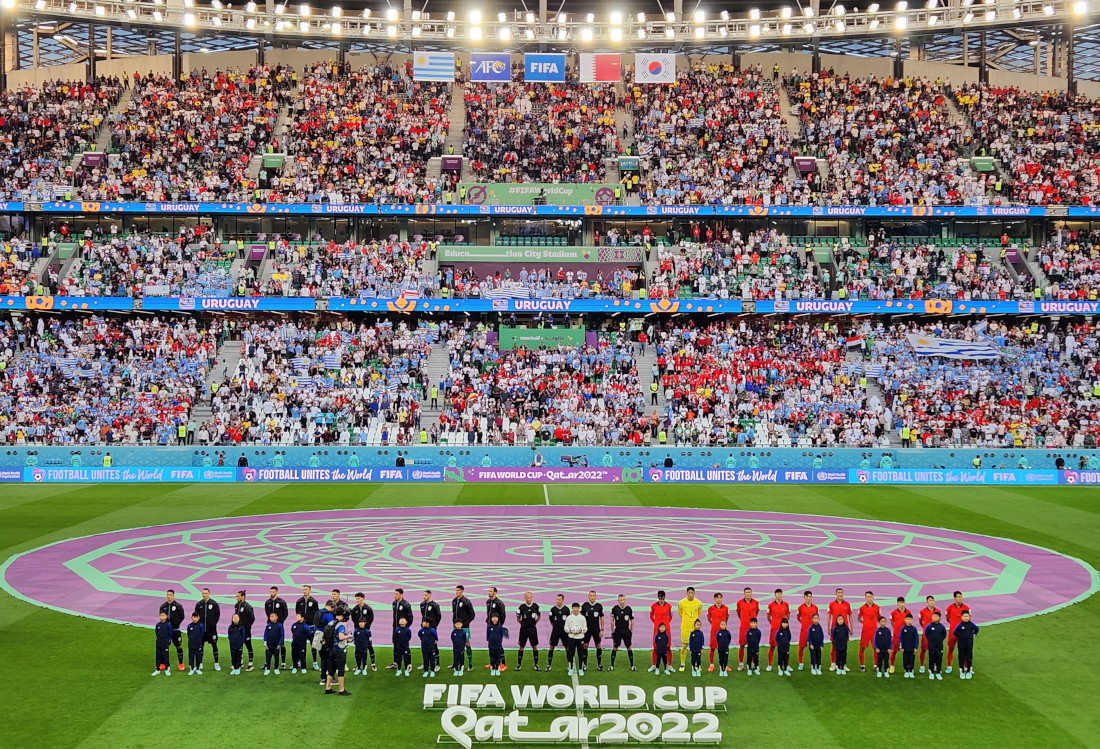Defensive maneuvers
Sportswashing as an international – and local – deflective tactic
When five-time Ballon d’Or winner Cristiano Ronaldo signed with Saudi Arabian soccer club Al Nassr late last year, critics cited the move as yet another example of sportswashing.
The term itself is “relatively new,” Sports Illustrated writer Michael Rosenberg explains, “but the practice is almost as old as sports” themselves. As a concept, “sportswashing is the use of sports to present a sanitized, friendlier version of a political regime or operation.”
As Al Nassr posted on social media, “This is more than history in the making. This is a signing that will not only inspire our club to achieve even greater success but inspire our league, our nation and future generations, boys and girls to be the best version of themselves.”
In practice, however, “best” for Saudi Arabians is often subject to arbitrary and discriminatory rules. Human Rights Watch reports how national authorities routinely repress “dissidents, human-rights activists and independent clerics.” Women often require a male relative’s permission to marry or obtain certain healthcare, and millions of migrant workers are routinely abused and exploited within the nation.
Similarly, Qatar drew ire when FIFA awarded the country host rights for the 2022 World Cup. Nonprofit organization Freedom House describes Qatari citizens as “among the wealthiest in the world,” although “the vast majority of the population consists of noncitizens with no political rights, few civil liberties and limited access to economic opportunity.”
New York Times editor Spencer Bokat-Lindell describes sportswashing, especially in regards to the Qatar World Cup, as “the propagandistic use of athletics by a government to launder its tarnished reputation.” But the political maneuver happens on a smaller scale, too.
“There is a hint of sportswashing every time a US president throws out a first pitch or a college president talks about football as the ‘front porch’ of a university,” Rosenberg writes. “Sports seem like they aren’t political, which is precisely why they are so often used for political purposes. The drama seduces us, and our passions distract us, and so we swallow whatever government officials feed us without even realizing it.”
Locally, it’s sportswashing whenever Premier Heather Stefanson evokes hockey victories to deflect criticism or blame. Stefanson notoriously answered a call for an inquest into the death of Krystal Mousseau, a COVID-19 patient who died in a failed airlift attempt, by boasting about her son’s provincial hockey championship win.
More recently, Stefanson praised four Brandon Wheat Kings players who allegedly “stepped up and helped save a suicidal man’s life.” As Alia Lister writes in a scathing CBC open letter to Stefanson, “One might think that the focus of that post would have been on the mental-health crisis this province is facing.”
Instead, the tweet and its “Let’s go Wheat Kings!” sendoff was seemingly mere promotion of a hockey team – made insidious by the fact that, as Lister outlines, Stefanson barely commented on the connected homicides of Morgan Harris, Marcedes Myran, Rebecca Contois and Buffalo Woman.
“These were horrific and heinous crimes against Indigenous women,” Lister pens, but “local news outlets and your other social-media platforms were missing a public address from you, the premier.”
Stefanson makes her stance on violence against Indigenous women, on the province’s failing healthcare system clear every time she dodges and deflects attempts to hold her government even partially accountable. At best, this is lazy leadership. At worst, it’s a vicious tactic to distract Manitobans with drama and passion – and it’s not working.
A former sports broadcaster, Danielle Doiron is now a writer, editor and educator. Find them in Winnipeg, Philadelphia, Fargo and, occasionally, on the airwaves.
Published in Volume 77, Number 13 of The Uniter (January 5, 2023)








